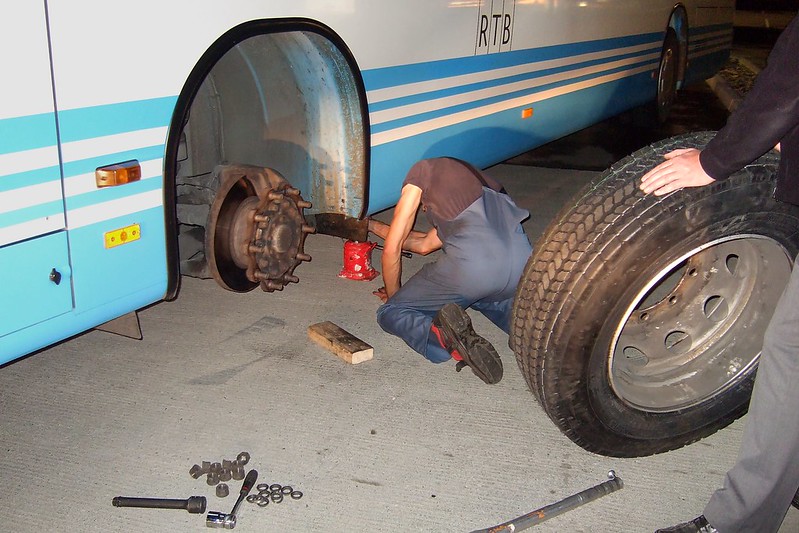How to learn from unforeseen events in tourism?
"If something can go wrong, it will go wrong." -Edward Aloysius Murphy-
Sooner or later, something will go wrong. Clearly no one wants it to be that way, but the chances that, at some point, something will go wrong are high. We would like to be able to sit down and write down each one of the possible scenarios that could arise and prepare in advance an action plan to solve them, mitigate them or outright prevent them from happening. Although doing such an exercise is a good practice, it is likely that Murphy's law does its thing and it's just the scenario that we did not imagine the one that plays out.
I have seen that in many tour companies the founder has the ability to quickly resolve the crisis on a tour and look for solutions so that the tourists' experience suffers as little as possible. Resolving unforeseen events seems to be part of the DNA of tourism entrepreneurs; but, what will happen the day the founder is not there to solve things? As the business grows and more collaborators join the operation and/or more tours are operated, using more suppliers, each piece we add to this puzzle makes it more complex and increases the chances that at some point something will go wrong. What to do then? Here are some tips.
TIPS FOR MANAGING THE CRISIS ON A TOUR:
- First and foremost: keep calm and carry on. Running in circles doesn't help anyone, especially when we have clients with us. If the tourists see that the guide is panicking, hysteria takes over and not even Mighty Mouse will be able to save the day. Hold yourself together, breathe from your chest, take a step back to analyze the problem and consider possible solutions to get out of the mess as best as possible.
- Thou shall not lie to customers. When something is wrong, don't try to fix it with lies. While it is true that clients do not need to have every single little detail, it is important to keep them up to date with the situation and let them know that we are already working on solving it.
- "The show must go on." While help arrives or the solution is executed, find a way to entertain; this will help you pass the time better. Is there any attraction or landmark nearby that you can visit to kill time? Do you know any games or activities to do while waiting? Depending on the type of emergency or the delay in the experience, consider some compensation for the inconvenience such as offering some type of complimentary consumption. Depending on what the costs of the tour or profit margins allow, perhaps a coffee, beer, soft drink, a fruit tasting, etc. In short, get creative without going overboard. Customers will appreciate it.
- As an owner or manager, always make sure your team has the right tools to handle unexpected events. Whether it is an emergency number in the company (that someone actually answers when there is an emergency), a complete first aid kit (and the knowledge of how to use it). But the most important tool will be knowledge; make sure your team receives constant training to deal with emergencies linked to your tour business.
- Trust your team. Make sure your guides know they have your trust to resolve the situation in the best way based on the tools available. Remember: inaction is the worst solution. Especially if it's due to fear of retaliation from management.
POST MORTEM: AFTER THE CRISIS ON A TOUR
Once the crisis has passed be sure to:
- Contact customers and let them know that you regret what happened and that you are taking the necessary precautions to ensure that a situation like this won’t happen again. Consider offering a discount, promo code, or gift card on a future tour purchase; or in another business that might be of their interest, such as a souvenir shop or a restaurant in the area where the company has a commercial bond. If you choose to do this, don't forget to set a deadline to redeem it. In my experience, few customers end up redeeming these gift cards, but the gesture is much appreciated and can avoid complaints or bad word-of-mouth.
- Last, but most important of all: document what happened and how it should be fixed the next time something similar happens. It is imperative to create a manual and a process that prevents something like this from ever happening again, but if it does happen again, how is it resolved? For example: the bus broke down? Then keep handy the numbers of two or three transportation providers in the area who could send a unit immediately to complete the service as well as the contact of a mechanic who can go to the site.
IF YOU DIDN’T READ ANY OF THE PREVIOUS ITEMS, TAKE THE TIME TO AT LEAST READ THE LAST ONE..
The creation of a crisis management manual is not only important to reduce the response time in case of an eventuality; but, in the unfortunate event that an emergency forces one of the tourists to take civil action or collect some type of compensation through their insurance company, to have or not to have a clear written procedure to avoid and resolve emergencies can mean a big difference for your business.
It is said that people don't learn in other people's heads; this might be true, but only if no one documented the solution the last time it happened. So make the setbacks a learning opportunity for your tour business and literally turn each setback into a learning experience.
MORAL:
Think about how to avoid it, but most importantly: if it does happen, document how to resolve it.
The Consultour
